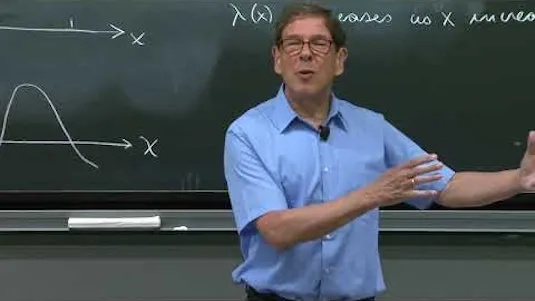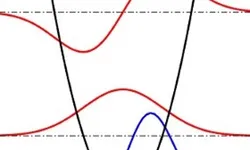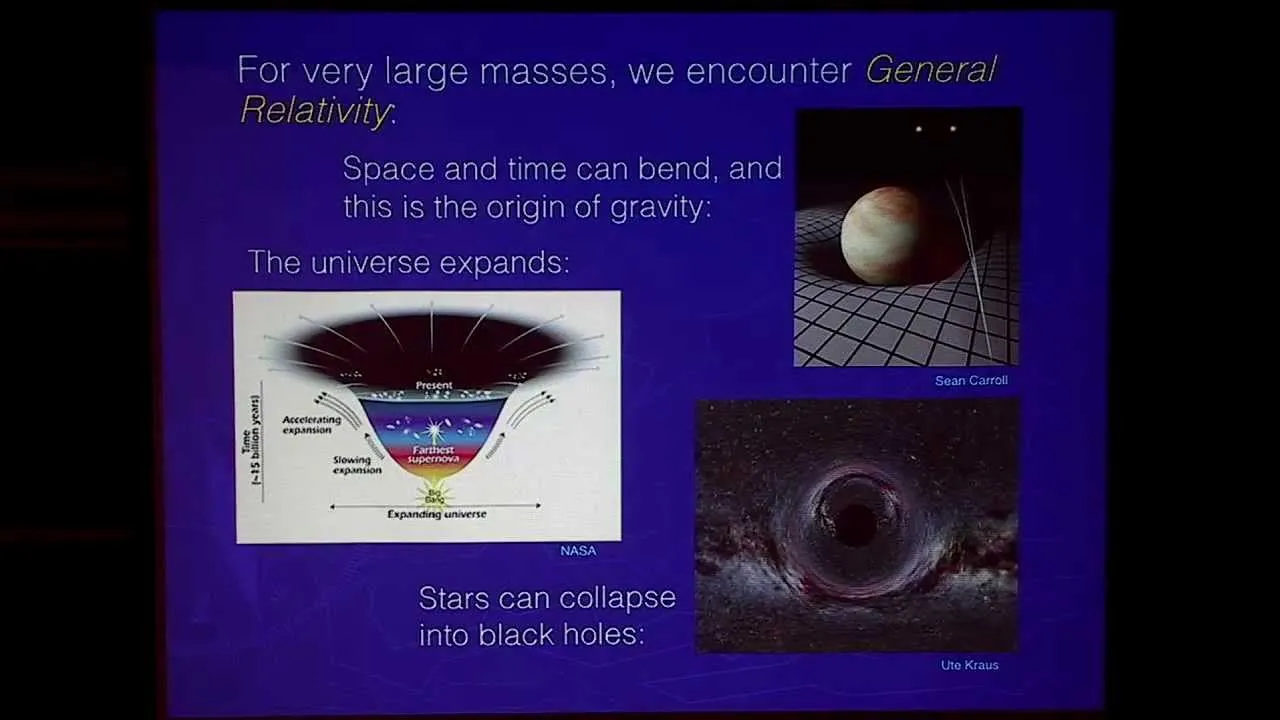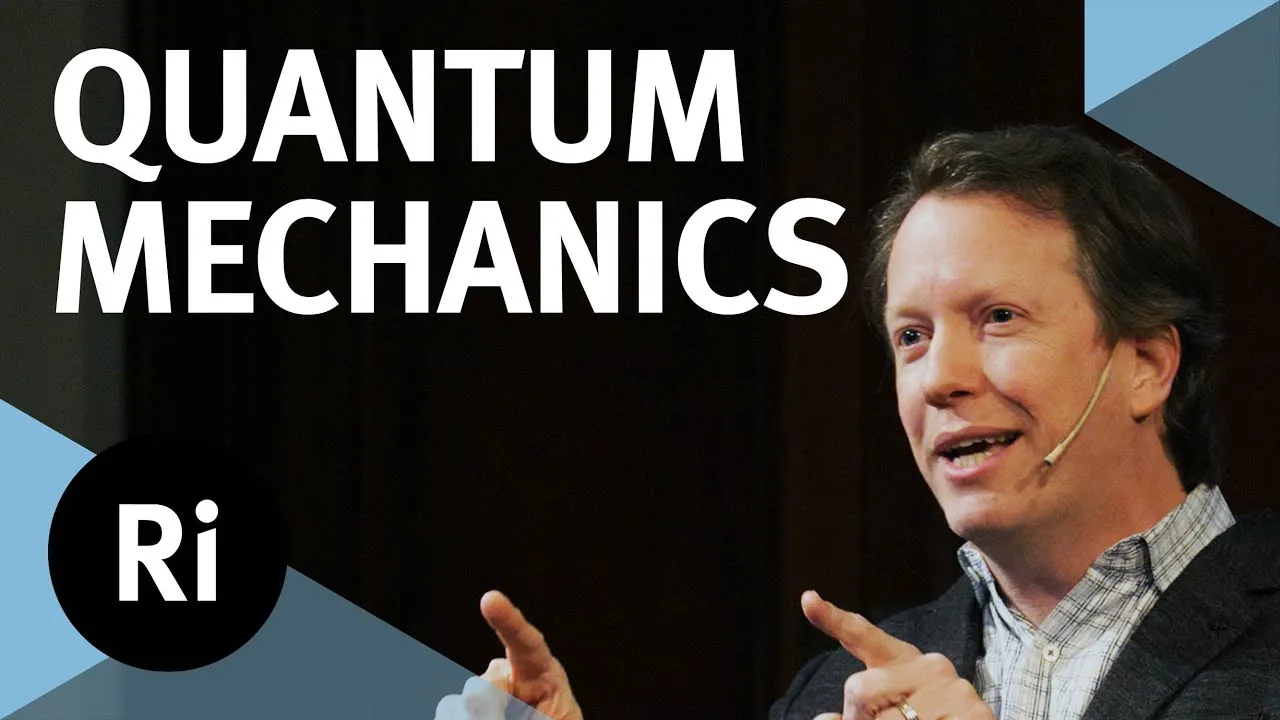
Quantum Mechanics: 1D Scattering and Central Potentials 
This course covers the fundamentals of one-dimensional quantum mechanics, including scattering, phase-shifts, time delays, Levinson's theorem, and resonances. Students will learn about barrier penetration and the Ramsauer-Townsend effect, as well as the application of central potentials to solve scattering problems. The course provides a comprehensive introduction to the principles of quantum mechanics. ▼
ADVERTISEMENT
Course Feature
![]() Cost:
Cost:
Free
![]() Provider:
Provider:
Edx
![]() Certificate:
Certificate:
No Information
![]() Language:
Language:
English
![]() Start Date:
Start Date:
18th Dec, 2018
Course Overview
❗The content presented here is sourced directly from Edx platform. For comprehensive course details, including enrollment information, simply click on the 'Go to class' link on our website.
Updated in [March 06th, 2023]
This course, Quantum Mechanics: 1D Scattering and Central Potentials, is the third in a series of four courses based on MIT 8.04: Quantum Mechanics I. It is designed to provide a rigorous introduction to the basic concepts of scattering – phase-shifts, time delays, Levinson's theorem, and resonances – in the simple context of one-dimensional problems. The course will also cover the study of angular momentum and the motion of particles in three-dimensional central potentials, including the radial equation and the case of the hydrogen atom in detail.
This course is the final course in the series, which includes: Quantum Mechanics: Wavefunctions, Operators, and Expectation Values; Quantum Mechanics: Quantum Physics in 1D Potentials; and Quantum Mechanics: 1D Scattering and Central Potentials. After completing the 8.04x series, students will be ready to tackle the Mastering Quantum Mechanics course series on edX, 8.05x.
[Applications]
Upon completion of Quantum Mechanics: 1D Scattering and Central Potentials, learners will be able to apply their knowledge to the Mastering Quantum Mechanics course series on edX, 8.05x. This series will further develop the concepts learned in the 8.04x series, and will provide learners with a comprehensive understanding of quantum mechanics.
[Career Paths]
1. Quantum Physicist: Quantum physicists use the principles of quantum mechanics to study the behavior of matter and energy at the atomic and subatomic level. They develop theories and models to explain the behavior of particles and systems, and use their knowledge to develop new technologies. Quantum physicists are in high demand in the fields of nanotechnology, quantum computing, and materials science.
2. Quantum Engineer: Quantum engineers use the principles of quantum mechanics to design and build new technologies. They develop new methods for manipulating and controlling quantum systems, and use their knowledge to create new devices and systems. Quantum engineers are in high demand in the fields of quantum computing, quantum communications, and quantum sensing.
3. Quantum Computing Researcher: Quantum computing researchers use the principles of quantum mechanics to develop new algorithms and architectures for quantum computers. They develop new methods for manipulating and controlling quantum systems, and use their knowledge to create new algorithms and architectures for quantum computers. Quantum computing researchers are in high demand in the fields of quantum computing, quantum communications, and quantum sensing.
4. Quantum Information Scientist: Quantum information scientists use the principles of quantum mechanics to study the behavior of information at the atomic and subatomic level. They develop theories and models to explain the behavior of information in quantum systems, and use their knowledge to develop new technologies. Quantum information scientists are in high demand in the fields of quantum computing, quantum communications, and quantum sensing.
[Education Paths]
Recommended Degree Paths:
1. Bachelor of Science in Physics: This degree program provides students with a comprehensive understanding of the fundamental principles of physics, including quantum mechanics. Students will learn about the mathematical and physical principles of quantum mechanics, as well as the applications of these principles in various fields. The degree also covers topics such as classical mechanics, thermodynamics, and optics. This degree is ideal for those interested in pursuing a career in physics or related fields.
2. Master of Science in Quantum Mechanics: This degree program provides students with an in-depth understanding of the principles of quantum mechanics. Students will learn about the mathematical and physical principles of quantum mechanics, as well as the applications of these principles in various fields. The degree also covers topics such as classical mechanics, thermodynamics, and optics. This degree is ideal for those interested in pursuing a career in quantum mechanics or related fields.
3. Doctor of Philosophy in Quantum Mechanics: This degree program provides students with an advanced understanding of the principles of quantum mechanics. Students will learn about the mathematical and physical principles of quantum mechanics, as well as the applications of these principles in various fields. The degree also covers topics such as classical mechanics, thermodynamics, and optics. This degree is ideal for those interested in pursuing a career in quantum mechanics or related fields.
Developing Trends:
1. Quantum Computing: Quantum computing is an emerging field that is rapidly gaining traction. It is based on the principles of quantum mechanics and uses quantum bits (qubits) to store and process information. This technology has the potential to revolutionize computing and has applications in fields such as cryptography, artificial intelligence, and machine learning.
2. Quantum Sensors: Quantum sensors are devices that use the principles of quantum mechanics to measure physical quantities such as temperature, pressure, and magnetic fields. These sensors are becoming increasingly popular due to their high accuracy and sensitivity.
3. Quantum Materials: Quantum materials are materials that exhibit quantum mechanical properties. These materials have a wide range of applications, including in quantum computing, quantum sensing, and quantum communication.
Course Provider

Provider Edx's Stats at AZClass
Discussion and Reviews
0.0 (Based on 0 reviews)
Explore Similar Online Courses

Hadoop Platform and Application Framework

Viral Marketing and How to Craft Contagious Content

Python for Informatics: Exploring Information

Social Network Analysis

Introduction to Systematic Review and Meta-Analysis

The Analytics Edge

DCO042 - Python For Informatics

Causal Diagrams: Draw Your Assumptions Before Your Conclusions

Whole genome sequencing of bacterial genomes - tools and applications

Foundations of Quantum Mechanics

Gravity and Quantum Mechanics - The Quest for Unification


Start your review of Quantum Mechanics: 1D Scattering and Central Potentials